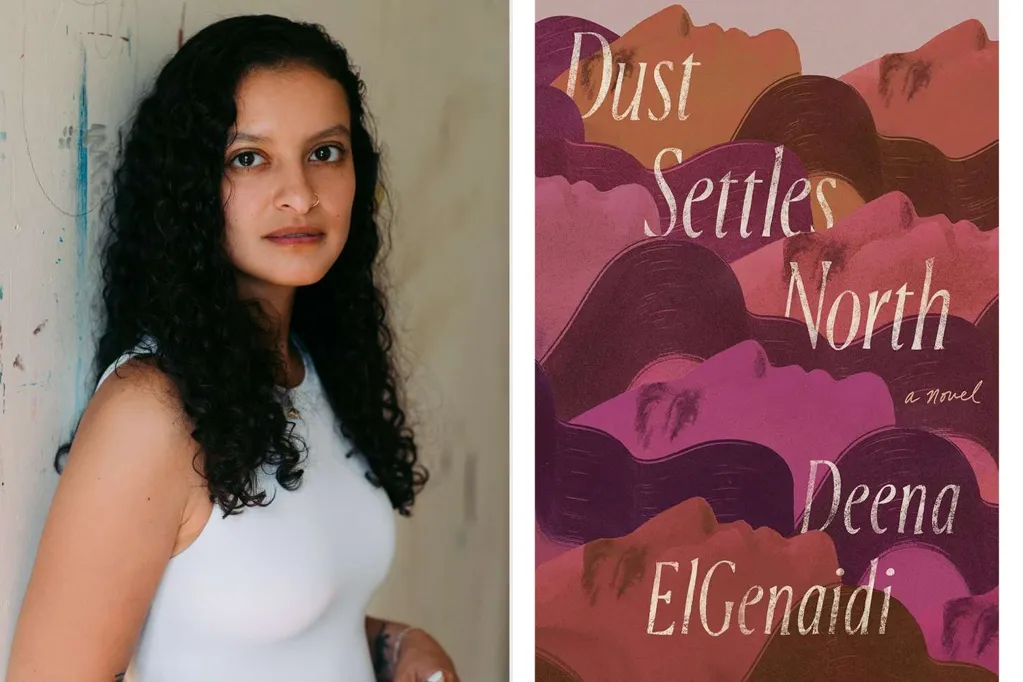When my debut novel, Dust Settles North, first went up on Goodreads, one comment stood out to me: "Really really hoping the Muslim rep is good."
That comment didn't sit well in my mind. What is "good" Muslim representation? And does my idea of "good" representation match the commenter's?
My novel follows two Egyptian American adult siblings, raised Muslim by immigrant parents. As a Muslim American myself, I know that our identities can be complicated, and most people in America have no conception of Muslims outside of TV, film, and racist propaganda in the news.
Since 9/11, we've been depicted as terrorists, the image perpetuated by shows like 24 and Homeland. Then there are the Muslims depicted as religious zealots. The men are seen as misogynistic, and the women are oppressed. When I think back to other books, even those written by Muslims, many unfortunately still fall into these stereotypes, and there's almost always some subplot related to terrorism. Perhaps it's the fault of their publishers, who want to publish books that fit into the narrative of how the media views us. Publishing is a majority White industry, after all, and when a non-Muslim editor receives a story that reinforces what they already know, I can see how they'd be more likely to accept it.
No doubt, we need more "good" representation, as the media has been flooded with racist stereotypes for as long as I can remember. But the idea of good representation in itself is so nuanced and diverse.
When I read that comment on Goodreads, I thought back to season 1 of the show Ramy, created by and starring Ramy Youssef. Watching that show, for the first time in my life, I felt seen. Here was an Egyptian American family living as regular people in New Jersey (where I also happened to grow up). The women are not oppressed, and the characters grapple with living in between two cultures. Siblings Ramy and Dena are brought up by Arab parents with Muslim values, which often clash with their American identity. I found their stories to be relatable and funny, but I was surprised to see the criticism the show received from other Muslims in that first season.
Many criticized the show for its depiction of Muslims who reject their parents' strict practice of Islam, breaking the rules they've been brought up with. In my novel, the characters are often seen defying their religion. They drink, they smoke, they have sex.
In We Are Ladyparts, a show created by Nida Manzoor, a group of Muslim women form a punk band, and each member is different in their religiosity, beliefs and upbringing. The characters are diverse and multifaceted, grappling with issues like identity, faith, romantic entanglements and more.
In Mo, we see the ways Muslim culture can be integrated with American life. Its star and creator, Mo Amer, offers quite a nuanced view of Muslims. Neither Youssef nor Amer were trying to represent all Muslims in either of their shows. Youssef has even said in interviews that rather than represent all Muslims or Arabs, he was simply telling the story of one character and one dysfunctional family.
I wrote my book aiming to show other Muslims like me -- ones who grew up in the United States and struggle to align their own values with the values and rules that were instilled in them from childhood. But just like Mo, Ramy and We Are Ladyparts differ, there's no one correct way to depict Muslims.
I think it would be impossible for one book to do so. After all, when a story follows a white family, we don't expect them to be representative of all white people. So why the double standard when it comes to underrepresented groups? My characters are Egyptian, and their experience is different from that of a Muslim person who is Nigerian American, Malaysian American or Palestinian American. And even among Egyptians, there are so many different stories and lives.
However, one thing is true: we desperately need more Muslim representation in books, TV, film and media. Just like there are many sects of Judaism or Christianity, there are many ways to be Muslim. Some are more religious than others, and some are not practicing but still identify as Muslims because it is a part of our identity, whether we like it or not.
I consider "good Muslim rep" to could be anything that doesn't rely on stereotypes or racist narratives.Instead of worrying about what qualifies as "good representation," we should instead be championing more stories with all different kinds of experiences to show that Arabs and Muslims are not a monolith and that there is no one correct way to represent a group.
